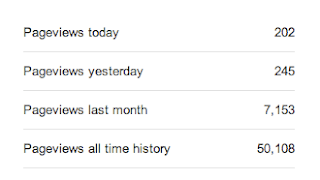I’m in the process of re-reading Cathy Davidson’s excellent book, Now You See It (here’s my initial review). My Freshman Writing classes are done with Fahrenheit 451, and we’re moving on to a more optimistic view of the future. This is (obviously) the first time I’m teaching this book, and it’s going to be a challenge to come up with assignments both large and small to engage the students with the work. Not because it’s a difficult book to engage with, but because it’s new, and as Cathy Davidson points out, the new is hard.
So much of the book resonates with me because I’ve actively sought jarring and unfamiliar experiences: I decided to not to attend an English university in my hometown on Montreal, instead
choosing attend a smaller French university; I headed
North and West to do my PhD; my first tenure-track job
was at an HBCU (and as to why that’s “strange,” take a look at my picture). Even now, this Canadian city girl is in
the middle of Appalachia. Every single one of these choices has forced me to confront my preconceptions and, as Cathy Davidson (and obviously others) points out, this disruption is essential to learning: “Learning is the constant disruption of an old pattern, a breakthrough that substitutes something new for something old. And then the process starts again” (5).
(This, by the way, is going to be the “free write” discussion question I post to my students before we start any class discussion; how many of them have experienced that as a part of their education?)
I’ve always been restless. I need to feel like I’m moving forward, challenging myself, really learning. As much as I enjoyed my undergraduate experience, I knew that any job I took, any job that I was trained for, would bore me to tears, and that I hadn’t really been challenged intellectually. Grad school, it seemed, held the promise of greater intellectual stimulation. But I am forever grateful for the Université de Sherbrooke for providing me with such a wonderful environment in which to learn.
Sherbrooke started as a service city for a large and fertile farming area in south-eastern Quebec. The university itself, founded in 1954, in still one of the youngest free-standing universities in the province. All things considered, there was no reason why the university could or should evolve into one of the most innovative and dynamic universities in Canada. But it did. It’s medical school, in 1987, moved to Problem-Based Learning, and now is
cited as an example for other schools to follow. It’s engineering school also works largely on a problem-based program. It always seemed strange to me that Sherbrooke was ranked in the “
Medical-Doctoral” category (medical school notwithstanding) because the focus was so squarely on the undergraduate experience.
My program was no exception. I was studying “professional writing” in English (yes, I went to a French university to study English). Our program was small, professionally oriented, but also one that responded not only to the needs of the job market, but also the needs of the students. We learned HTML and web design back in the mid-1990s. In an English program! I edited our small student newspaper, oversaw the birth of the online version (no longer available), and had lots of informal opportunities for translation. When a large group of students (from my year and others who were ahead of us) were voicing their displeasure about the program, I organized a meeting between the faculty and students to discuss the direction of the program. We were writing publicly in many of our classes before we even knew that’s what we were doing.
I was lucky. While I was being “trained” so to speak for a profession (to be fair, multiple professions: journalist-editor-translator-web writer-technical writer), it was in an environment where we were free, in fact, encouraged to create our own jobs, our own profession. It was never hidden from us that, while jobs were almost a guarantee (this was during the tech boom), self-employment and being a freelancer was an attractive option. We were connected with alumni who had successfully gone off on their own. We were, as a small English program in a large French university, a community who worked together, took care of one another, and helped each other succeed. I loved that.
I compare my undergraduate institution with the one that I am currently teaching at. The experience for my students couldn’t be more different. And yet, this is a place where education should be on the cutting edge of innovation. The programs that most of our students major in (education, nursing, vet tech, engineering tech) are perfect for Problem-Based Learning and a more collaborative style. But, in a cruel irony, these are the programs that are most rigidly standardized and controlled by external (and internal) accrediting bodies. And in most of our other programs, we prepare students for urban, white collar jobs that just don’t exist in our region.
One expects cities to be the centers of innovation, but I think we need to look to rural colleges and schools for new ways to teach and learn. Scratch that, we need to liberate rural colleges and schools in order for them to better serve their students, providing for them an education that they can use in their communities, to improve their communities. But, we don’t, in part because we assume that rural students are “less than” their urban (and urbane) counterparts. Those who can, leave. Those who stay…
This is, Cathy Davidson would say, an assumption that needs disrupting. Innovative, relevant, and enriching education can happen anywhere. Sherbrooke proves that. I want my students to prove that, too.



